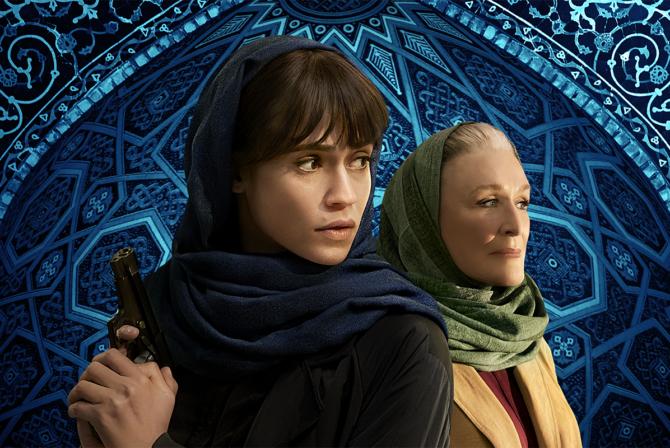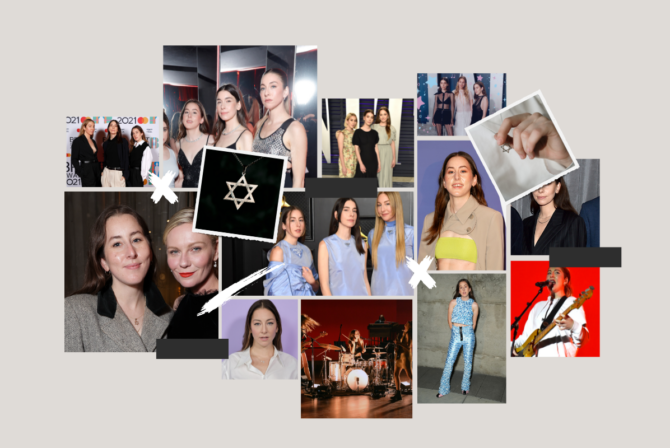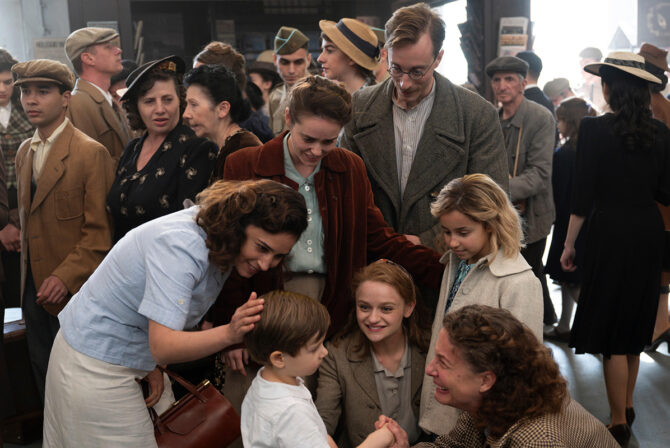My Jewish grandmother is stereotypical—and proud of it. She’s short, round, warm. She loves to bake (or, as she puts it, “to potchke in the kitchen”) and to play bridge and Mah-Jongg with her friends. She finds nachas in her family. Perhaps above all else, she’s desperate for great-grandchildren.
So when she found out that I was gay, her first response to me was a despondent, “You’re not one of those, are you?” Then she sobbed. And for a while, she would only say, “We’ll see,” when invited to meet my partner.
My partner, now wife, wasn’t upset by any of this; her parents had her quite late, so her mother is of the same generation as my grandmother, and thus Fi is experienced with the quirks and prejudices some elderly people can have. She kept me calm by reminding me that it would take a while for my grandmother to absorb this news, and that we had to understand that it’s painful for people to give up on the dreams and expectations they have for their relatives. And, if the worst happened and Grandma never came around, well, that would be dreadfully sad, but we reside in another country and could just go on with our lives as we liked. She felt sure we’d get through this together, as we had gotten through many other things.
Grandma’s other two grandchildren are men in their early 20s. They’re tall, handsome, and bright. One has a girlfriend whom Grandma really likes. The other is a single playboy with a variety of lady friends, but, as Grandma likes to point out, he has a very good salary and a sparkling personality so he’s sure to attract a nice Jewish girl at some point soon.
So which grandchild does she nag about producing a baby?
Surprisingly, it’s me. True, Judaism is passed on through the mother’s line, and both my cousins have a clear preference for non-Jewish women, as, in fact, do I. But her sudden eagerness for Fi and me to have a baby seems to be about more than just a desire for a Jewish grandchild. In a strange way, I think it must somehow be connected to my late grandfather.
Eventually, my Grandma agreed to meet Fi, and she totally fell for her. I think she saw a bit of my grandfather in Fi; Grampy had died a year before, after some years of suffering from Alzheimer’s. He was a kind, loving, devoted family man with impressive artistic, musical, and DIY skills; the sort of person who would grumble about not wanting to spend money, but then he’d slip a few bills into the hands of his grandchildren when he thought no one was looking. He did so much for people, but never took any credit for it. A real mensch.
Fi is very similar, except for the grumpiness. She is quick to help out and to give to others, and she is thoughtful, warm, attentive, and talented in ways no one else in the family is. My grandfather would have loved her, I think, and I suspect Grandma recognized the kinship between them, despite them being from different cultures, countries, religions, and generations. You don’t have to be Jewish to be someone who loves family and will do anything for relatives; maybe it took meeting Fi for Grandma to recognize that.
After spending time with Fi, my grandmother said, “I see that you and Fi really love each other. And when two people love each other so much, they start a family.” She began telling me about how her two daughters had brought her such joy. She said she wanted that happiness for us too (and, let’s face it, she wanted a great-grandchild). I told her we were thinking about it. She told me to stop thinking and start doing.
Before our visit with Grandma ended, we met her and my mother and aunt for breakfast at a restaurant. Grandma announced that she’d been cleaning her condominium and had some presents for us (in other words, she wanted to give us the junk she was getting rid of). She handed me and Fi a carved wooden statue. It puzzled us, but we thanked her. She then explained that she and my grandpa had purchased it on a trip to Africa. She said, “It’s a god.” She paused meaningfully. “A fertility god.” We all laughed and Fi and I stuck it in our luggage to bring home.
One year after that initial visit, Fi and I again embarked on a trip to the U.S. This time, however, the next generation was with us, in the form of a fetus. A few hours after landing, we met with my mother, aunt, uncle, and grandma at the same restaurant where Grandma had given us the fertility god. During a lull in the conversation, I said, “Grandma, Fi and I have ordered a special birthday present for you.” This puzzled her, as it was May, and her birthday isn’t until October. A minute later, she understood just what would be delivered in October, and she couldn’t have been more thrilled.
“This has given me a reason to live,” she said, in her overly dramatic way. “I need to make it to October now.” Then she teared up. Her sentimentality wasn’t all she was feeling, though; over the course of her visit, she proceeded to ask us lots of questions about the father of the baby, how sperm has to be handled, what sort of syringe was used, where we inseminated, and so on. Some of her questions were a bit much, but it was lovely to hear how curious and engaged she was.
She used to tell me that all I needed was to find a nice Jewish husband, and now she was more interested in my non-Jewish wife and our soon-to-be baby; suddenly she wasn’t bothered by the need to “stick to our kind,” and instead she just wanted to celebrate love and family. That, after all, is the heart of the Jewish experience for her.
Like this post? Get the best of Kveller delivered straight to your inbox.







